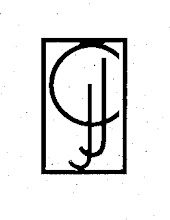
“Every living thing dies. There’s no stopping it.”
—the opening paragraph of Unsaid, by Neil Abramson
—the opening paragraph of Unsaid, by Neil Abramson
As I posted earlier on Lull, my reading these last few months has been full of heartbreak and partings—people from dogs, horses from people, goats from turkeys, geese from cows. There’s no end to these losses.
I grew attached to the animals I read about on blogs and in books and when they passed into the Great Beyond, my thoughts followed them. I was reluctant to let go.
I take some solace in imagining an idyllic Afterlife where once-Earth-dead creatures now frolic (or graze or float or whatever they desire) and live beyond their psychological and physical constraints.
 When I finished reading The Eighty-Dollar Champion: Snowman, the Horse that Inspired a Nation, I kept thinking about the sweetness and patience Snowman had extended to everyone. He had a good life back in the day, but I wondered what his life was now. Surely his story continues.
When I finished reading The Eighty-Dollar Champion: Snowman, the Horse that Inspired a Nation, I kept thinking about the sweetness and patience Snowman had extended to everyone. He had a good life back in the day, but I wondered what his life was now. Surely his story continues.I e-mailed a friend to share my thoughts about the book (which she had also read) and said I hoped Snowman had found his way to Just-A-Bob, our favorite character in Jane Smiley’s Horse Heaven.
I e-mailed again after realizing my remarks had populated Paradise with fictional creations as well as the blood-and-bones variety. My friend, ever gracious about my many blunders, wrote back to say that of course our fictional favorites reside in the Afterlife. What’s more, fictional places are part of the landscape there (think environments devised by Tolkien and Lewis).
Fictional places? Wow! My friend had just exponentially expanded Paradise for me. I started rewinding my memories of all the books I’d read and all the films I’d seen. It made me dizzy.
“I have always imagined that paradise will be kind of a library.”
—Jorges Luis Borges
—Jorges Luis Borges
Playwright Eugene O’Neill imagines Heaven for us in “The Last Will and Testament of An Extremely Distinguished Dog,” a piece he wrote for his wife in dreaded anticipation of their beloved Dalmatian’s death. It’s written from the perspective of the dog, who describes Paradise as a place “where one is always young and full-bladdered … where each blissful hour is mealtime.”
Like Borges, O
 ’Neill (on behalf of his dog) fashions Heaven in simple and self-serving terms that I can easily understand. It’s whatever you want most—every birthday and twinkling-star wish you ever made all rolled into one. While these are sweet notions, I suspect the truth is a bit more complex.
’Neill (on behalf of his dog) fashions Heaven in simple and self-serving terms that I can easily understand. It’s whatever you want most—every birthday and twinkling-star wish you ever made all rolled into one. While these are sweet notions, I suspect the truth is a bit more complex.In his essay “Sick Dog,” environmental activist and writer Rick Bass speaks to the sorrow of loss and posits a different type of Heaven,* one that stokes my imagination and belief:
“[P]erhaps the seams, the laminae, between the various worlds—the past, present, and future, as well as the living and the nonliving—may not be as distinct and clear-cut as we have been taught, or as our somewhat arbitrary clocks and calendars have led us to believe.
“Sometimes—not always, and I think I could even say rarely—but still, sometimes, I perceive that there is a stillness and a wholeness in the world, or in some portion or corner or fragment of the world, for some little place in time, where things just feel so right and huge and powerful and easy that I will have the perhaps blasphemous thought that maybe there are layers of heaven, and that, with our species’ dependence upon visual acuity, we might fixate too much on notions of streets-lined-with-gold as indicator or marker of when a traveler arrives in that place.
“There are definitely moments in time and places in the world where we have each felt the peace and wholeness, the stillness, spoken of in such prophecies and promises. For me it is experienced most often when I am deep in the wilderness, or up on the ridges of mountains, or in the fields and prairies with nothing but field and prairie to the horizon, or when I am simply in the presence of family. In such moments I think very much that the case could be made that we are already ankle-deep in heaven.”
Ahhh. Thank you, Mr. Bass. A picture of Paradise is coming in clearer now.

I think again about the people and animals I’ve met through my reading—their deeply felt bonds, their unfathomable grief over the deaths of their mates. It’s a comfort and a relief to view them through Rick Bass’s lens: to believe that in each relationship, long before the untimely departure of one being, the pair’s Earthly life together was already “ankle-deep in Heaven.” In the future, this is the layer I shall try to commit to memory.
* Paragraphs may not be in original order. Essay is included in the anthology WOOF! Writers on Dogs.
[Painting by Abbott Handerson Thayer and recolored for Lull.]



No comments:
Post a Comment